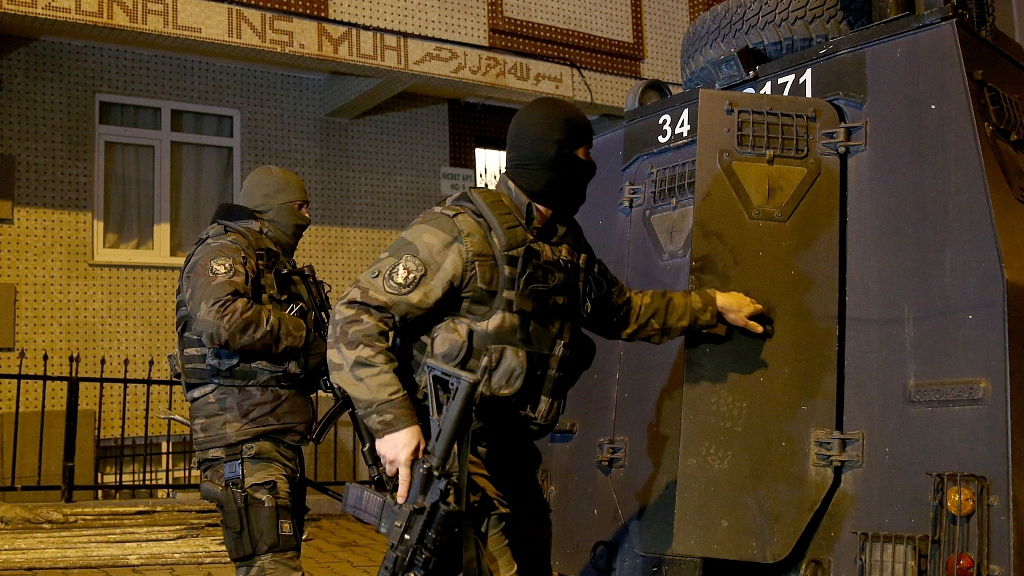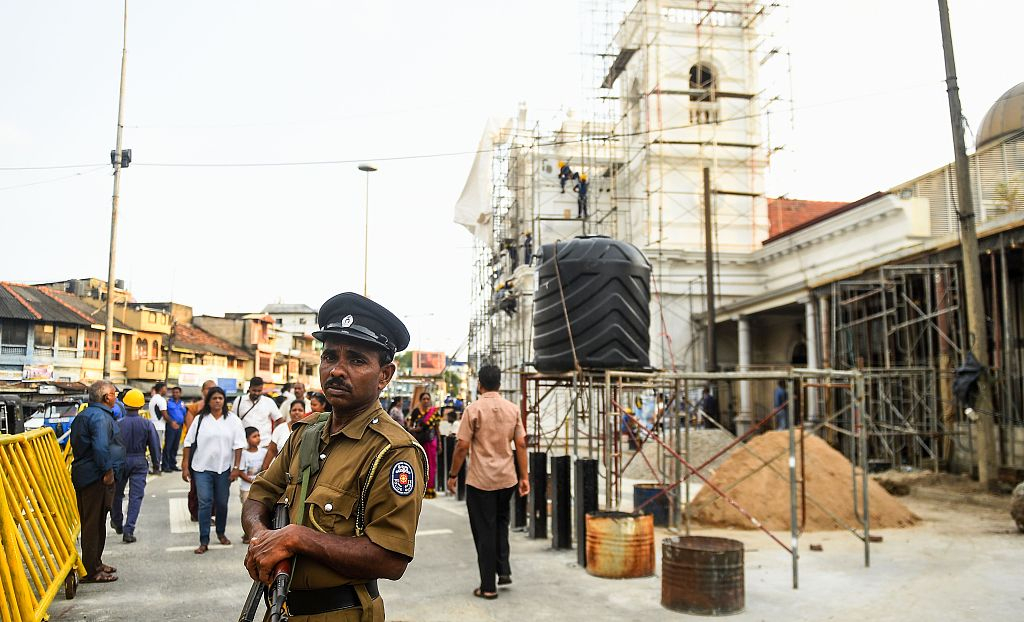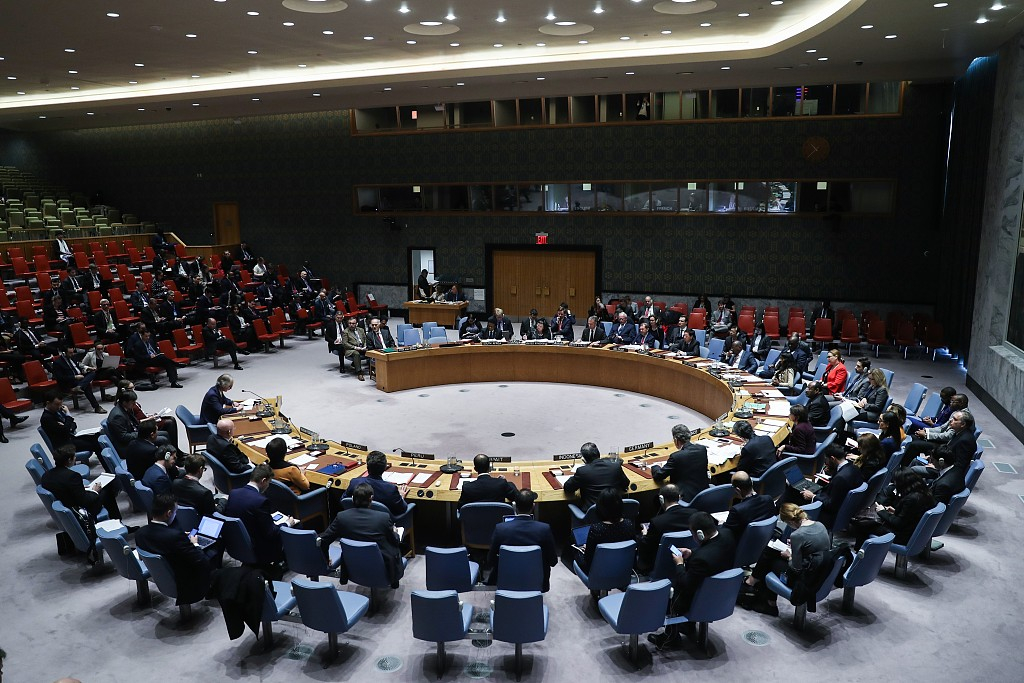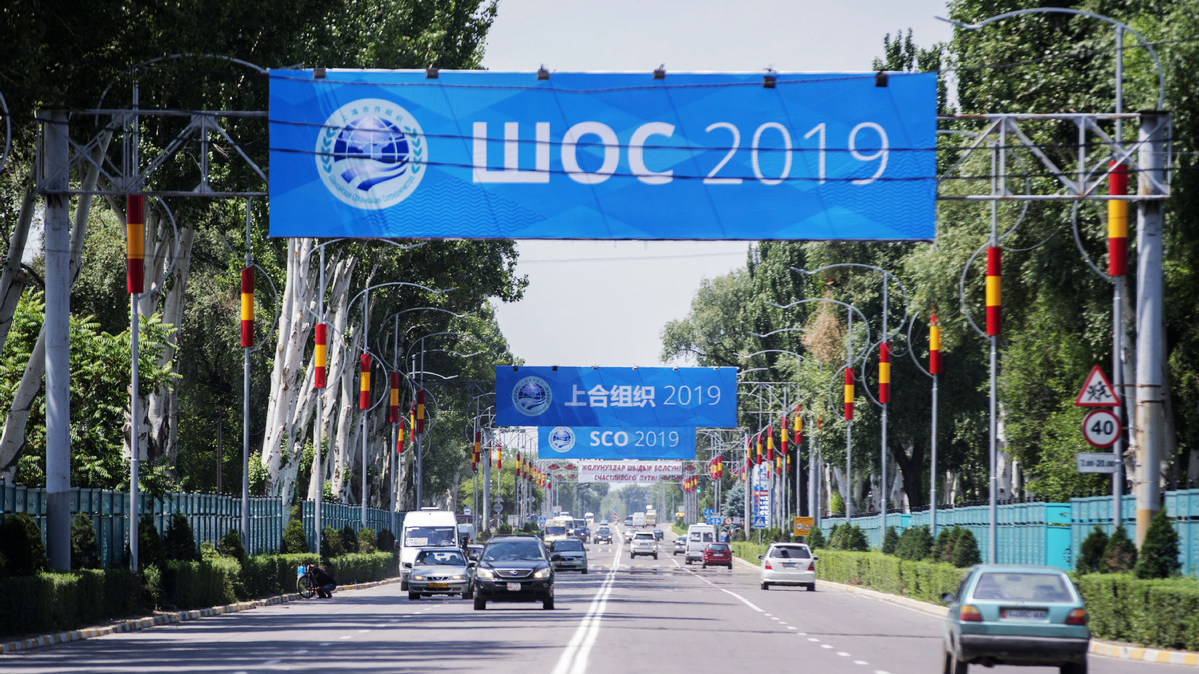

Editor's note: Kulbhushan Warikoo is a former professor at the Centre for Inner Asian Studies, School of International Studies, Jawaharlal Nehru University, New Delhi. He is a senior fellow of the Nehru Memorial Museum & Library, New Delhi. The article reflects the author's views, and not necessarily those of CGTN.
On 21 April 2019, Easter Sunday suicide bombers belonging to Islamic State-inspired Sri Lankan Muslim Thowheed (Tawhid) Jamaat made a series of bomb attacks targeting Easter congregations in many churches and hotels in and around Colombo, killing over 250 persons and injuring over 500 people.
The Colombo massacre once again brought into focus the deadly character of the transnational Islamist terrorist network led by the Islamic State (ISIL). It's clear that the Islamist terrorists have expanded their areas of operations from Syria, Iraq, Afghanistan to South and Central Asia. They have already declared their aim to create a Darul Islam (pure Islamic State) and have declared Christians, Jews and Hindus their enemies.
The proposed Islamic Caliphate covers the regions of West Asia, parts of South East Asia, Central Asia and South Asia. Recently, General Mahesh Senanayake, Sri Lanka's Army Chief of Staff told a news agency that some of the suicide bombers behind the Easter Sunday blasts had traveled to Kashmir and Kerala in India to get some sort of training.
As such, one cannot ignore the ISIL chief Abu Bakr al-Baghdadi’s recent video in which he referred to the Easter bombings in Sri Lanka, indicating that the targets were in keeping with ISIL instructions to go after followers of “infidel” faiths. Just one day after security forces killed the chief of ISIL's unit in Kashmir, the Islamic State announced a separate Wilayah-e-Hind (Indian province), indicating that it intends to intensify terrorist activities in and around India.
The UN General Assembly and other UN bodies have time and again reiterated the unequivocal condemnation of all acts, methods and practices of terrorism, regardless of their motivation, in all their forms and manifestations, wherever and by whomever committed, as acts aimed at the destruction of human rights, fundamental freedoms and democracy, threatening the territorial integrity and security of states, destabilizing legitimately constituted governments, undermining pluralistic society and the rule of law having adverse consequences for the economic and social development of the State.

A Sri Lankan policeman stands guard as Catholic devotees take part in a remembrance ceremony in front of St. Anthony's Church in Colombo, May 21, 2019. /VCG Photo
Despite repeated condemnations and appeals by the international community for an end to acts of terrorism perpetrated by terrorist groups, their atrocities have assumed even more violent and barbaric manifestations of fidayeen (suicide) and car bomb attacks, kidnappings, hijacking and the beheading of innocent victims including women and children.
The phenomenon of terrorism has acquired multiple and dangerous dimensions, particularly the increased role of religious terrorist groups, the proliferation of small arms, narco-terrorism, money laundering and proxy war by a state using mercenaries and terrorists against another state.
Taking due cognizance of the grave threat posed by terrorism to democracy, civil society and the rule of law, the UN Security Council adopted a Resolution 1269 on 19 October 1999, calling upon “all States to take appropriate steps to address the issue of terrorism."
The emergence of a lethal combination of transnational terrorism, religious extremism, drugs and arms smuggling has been posing a serious threat to the human rights of civilians and international peace and security.
It is high time that this menace is confronted and combated firmly. Acts of terrorism by armed bands, religious groups and their sponsors need to be monitored and dealt with effectively.
Since the issue of terrorism has assumed center stage in the discourse on international cooperation to combat terrorism, three approaches are proposed to arrive at a consensus on the part of states.

UN Security Council meeting on the situation in the Middle East at the United Nations Headquarters in New York, United States, February 28, 2019. /VCG Photo
The first approach should be laying down a legal framework and creating mechanisms within the states to deal with the terrorists for their activities within other states. Second, there should be interstate cooperation in dealing with global terrorism.
In this context, a mechanism needs to be evolved through which states could cooperate with other governing bodies by way of sharing information and identifying the culprits, their networks and their support systems within a territory.
The third approach is to identify and censure states that are sponsoring and sustaining terrorism to achieve their strategic objectives. International efforts to eliminate terrorism will bear little fruit if state sponsorship of terrorism continues. The international community should bring pressure on these states to resolutely stop these activities and help in the fight against global terrorism.
It's also necessary to launch an effective and well-coordinated campaign against the perpetrators of terrorism through international cooperation between states, regional and international organizations and UN bodies.
The rise of the ISIL and its sustained efforts to strike roots in South Asia compounds many security challenges. All through its summit meetings, the Shanghai Cooperation Organisation (SCO) has been stressing the need to fight the threats of religious extremism, separatism and terrorism.
In its initial year of establishment, the SCO members met in Shanghai in June 2001 and signed the Shanghai Convention on Combating Terrorism, Separatism and Extremism on 15 June 2001.

A "Shanghai Cooperation Organization 2019" banner with its logo. /VCG Photo
At the 18th SCO summit which concluded on 10 June 2018, the member states – China, Russia, India, Pakistan and the Central Asian Republics of Uzbekistan, Tajikistan, Kazakhstan and Kyrgyzstan – adopted a joint declaration strongly condemning all forms of terrorism and called for the creation of a unified global counter-terrorism front with the central coordinating role of the United Nations on the basis of international law, without politicization or double standards.
Certain basic principles need to be followed by states and the international community to achieve tangible results in the battle against terrorism and be in line with the spirit of the UN Security Council Resolutions. For example, trans-border and international terrorism should be dealt with effectively, through strong international cooperation between states, international and regional organizations and the UN bodies to ensure the arrest, extradition and prosecution of terrorists.
The UN bodies and states should also come out openly against acts of terror in all their forms and manifestations, without getting influenced by their own political priorities and compulsions. There should be no room for any ambiguity or misinterpretation of the definition of a terrorist.
The international community and the UN should impose sanctions against identified terrorist organizations, their members and more importantly the states that are sponsoring and harboring such terrorists.
All types of international assistance to such states should be made dependent upon their actions toward dismantling and destroying terrorist networks, their bases and infrastructure. This becomes necessary for deterring such states from supporting terrorists. Ensuring accountability and compliance is an essential element of the global strategy against terrorism.
(If you want to contribute and have specific expertise, please contact us at opinions@cgtn.com.)

Copyright © 2018 CGTN. Beijing ICP prepared NO.16065310-3
Copyright © 2018 CGTN. Beijing ICP prepared NO.16065310-3